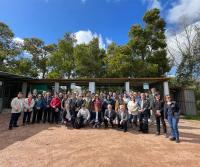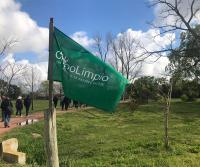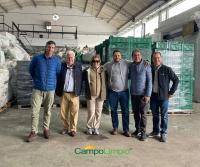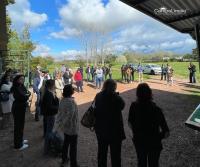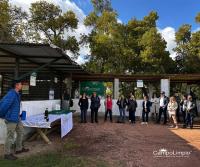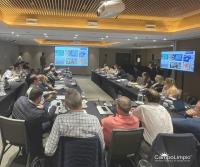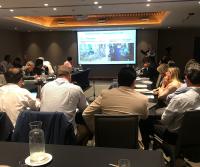The exchange of experiences at the CuidAgro 2023 meeting held in Uruguay on October 5th highlighted the technological leap in agriculture over the past 4 years. Data systematization, digitization, drone usage, the integration of biological products into the farmer's toolkit, and the protection of natural resources constitute a significant milestone for sustainable agriculture and biodiversity conservation in Latin America.
With 11 presentations focused on new technologies and best agricultural practices as essential factors to move towards a more sustainable agriculture, and with the participation of the Network of Associations and companies affiliated with CropLife Latin America, the CuidAgro workshop organized by CropLife Latin America was held in Montevideo, Uruguay, on October 5.
The digitization of data to improve productivity and comply with better environmental indicators, that protect biodiversity, were the central axes of the presentations that had, as a general context, the challenges faced by farmers of producing more food in the same area, in the midst of climate change and the scarcity of natural resources.
Pollinator protection as a regional priority
Proactive actions to protect pollinators stood out at the CuidAgro workshop with presentations in which pollinator refuges were highlighted, with initiatives that aim to meet the Sustainable Development Goals.
BASF presented the Alas para el Campo (Wings for the field) initiative, a project to preserve the monarch butterfly and other pollinators through the implementation of good agricultural practices in Mexico, Central America and the Caribbean. Rosa Inés González, Sustainability and Product Stewardship Manager for the BASF Latin America Pacific Region, explained that they work with training under the field school methodology and the promotion of gardens for pollinators, living fences or floral strips planted with seeds of wild species.
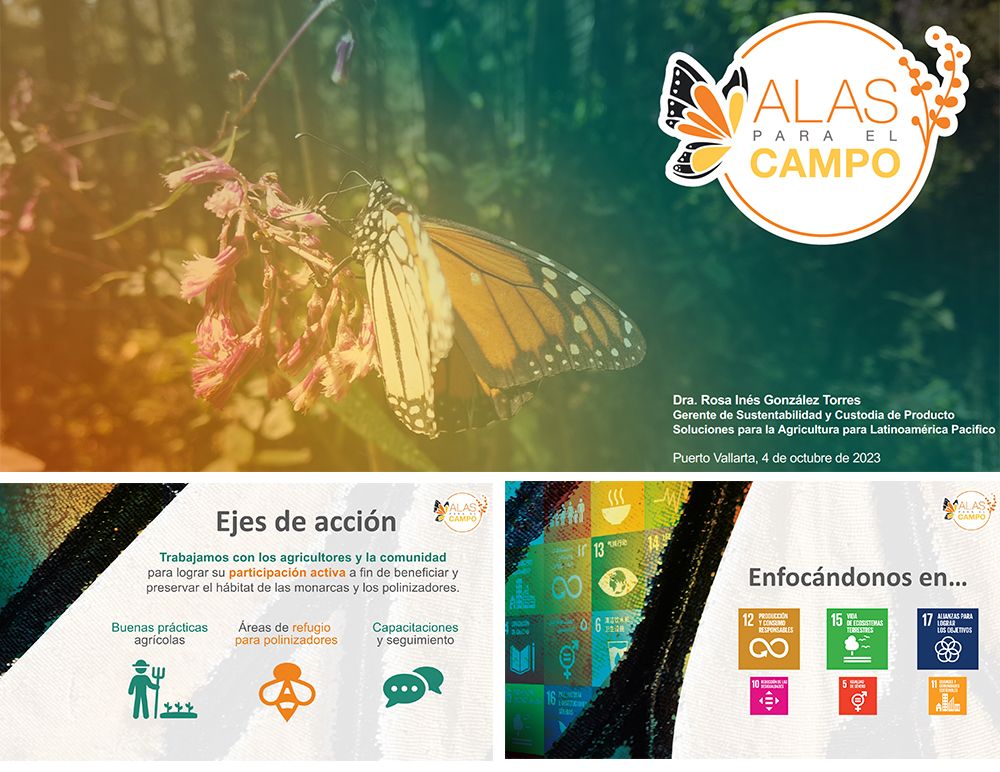
Syngenta presented its LivinGro initiative that promotes sustainable agricultural practices with a focus on biodiversity and soil health. Carlos Torres, Regional Director of Syngenta Central America & Caribbean, highlighted that 52 biodiversity parameters that are impacted by good agricultural practices are evaluated, creating scientific data to develop scalable models.

The Colombian Association ProCultivos-ANDI presented CuidAgro: license to operate 174 management and impact indicators, a training initiative to generate better agricultural practices in which the protection of pollinators is at the center of the strategy. They raise awareness among beekeepers and farmers to improve the management of air, water, soil, flora and fauna.
Safe Applications
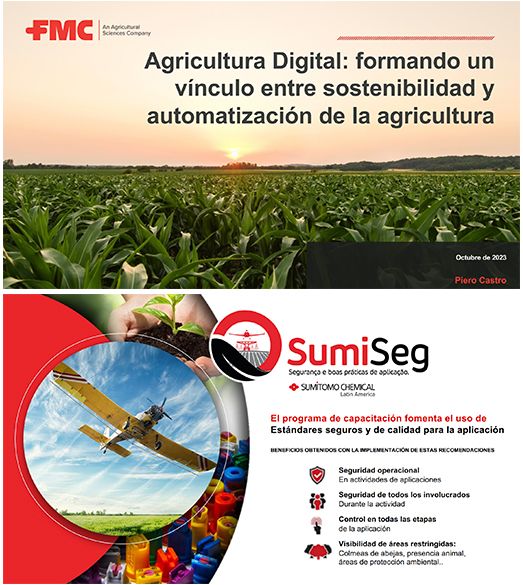 The heart of good agricultural practices is in the safe applications of crop protection products or pesticides. Responsible and safe applications are a kind of mantra that the crop protection industry, authorities, and farmers' associations promote and are the focus of innovations that increase efficiency and protect the environment.
The heart of good agricultural practices is in the safe applications of crop protection products or pesticides. Responsible and safe applications are a kind of mantra that the crop protection industry, authorities, and farmers' associations promote and are the focus of innovations that increase efficiency and protect the environment.
In this direction, Sumitomo presented the SumiSeg initiative, safety and good application practices, a training program in safe standards for the application. Training, which includes the delivery of Personal Protective Equipment (PPE), and guides on drone handling.
Digital Agriculture: forming a link between sustainability and agriculture automation was the title of the FMC presentation by Piero Castro, Regional Manager of Precision Agriculture for LATAM, CE, MECTA & Africa. He highlighted that advanced data science plus digital agronomy enable sustainable pest management. Precision agriculture, improved application techniques, the use of drones in certain crops, and biological products as an additional tool for the farmer make up a novel range of possibilities for the growers.
The application of biological products with drones was the central topic of the presentation by Alisson Barbieri of AgroEfetiva from Brazil. He explained that the registration of biological or microbiological products includes whether they can be applied by air, and an increase in the application service with drones makes it an additional service to conventional applications. The variables to consider for a safe application are the height and size of the drop, the density of the product and the climatic conditions.

Guatemala: how are 13 thousand hectares (32K ac) of sugar cane applied with 100% precision using drones? It was the success story presented by Sugar mill Magdalena, which highlighted that the key is planning, maintenance of the drones, willingness to learn, the use of obstacle detectors in the software and trained work teams made up of an application supervisor, a drone operator and a drone assistant.
From a country case perspective, the authorities of the General Directorate of Agricultural Services, of the Ministry of Livestock, Agriculture and Fisheries of Uruguay presented the Application Management and Monitoring, a project that seeks to regulate and control the responsible use of phytosanitary products. The management includes the single registration of operators, the registration of application equipment (ground, aerial and drone equipment), the applicator card and the registration of applications. These online records allow georeferencing where applications are carried out on a map that details the location of crops, schools, apiaries and protected areas. This project with financing from the World Bank includes the development of an APP and the installation of monitoring equipment on aircraft, drones and ground vehicles or sprayers. This monitoring allows greater traceability, essential to facilitate international trade.
Federico Elorza coordinator of sustainable management of CASAFE, Argentina, in his presentation Smart fields: introduction to Precision Agriculture and Smart Farming, highlighted the emergence and adoption of numerous emerging technologies that contribute to the generation of data for better decision making. The challenges to take full advantage of these technologies include improving the connectivity of rural areas and improving access to technologies.

Legality of the products
Proccyt of Mexico presented CuidAgro in the value line, an initiative aimed at distributors, which promotes good management, compliance with standards, the sale of legal agrochemicals and recognizes committed distributors with the Trusted Distributor badge. Campaigns against illegal trade are included in all initiatives that promote better agricultural practices for agricultural sustainability.
The CuidAgro 2023 meeting concluded with this exchange of experiences in which, the technological leap of the last 4 years in agriculture, and a greater concern for biodiversity and for measuring the progress of more sustainable practices were evident.









